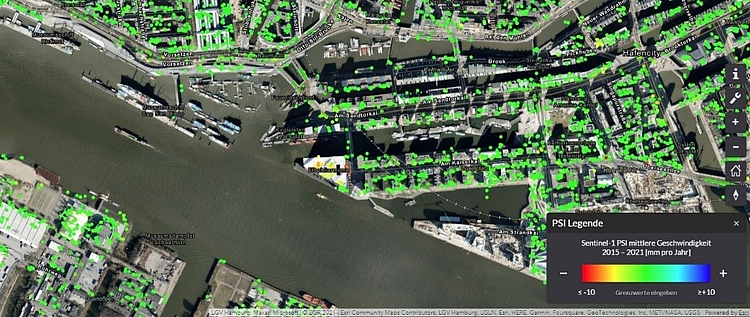Machine learning-based classification of the Persistent Scatterer Interferometry time series

| Betreuung: | Mohammad Omidalizarandi, Kourosh Shahryari Nia |
| E-Mail: | zarandi@gih.uni-hannover.de |
| Jahr: | 2024 |
Accurate and relatively large-scale deformation monitoring of civil infrastructures in residential or industrial areas is of great importance. Besides, such deformation monitoring is also important in the assessment and management of natural hazard processes like landslides, earthquakes, and floods. In this master thesis, the Persistent Scatterer Interferometry (PSI) time series is used, which are generated from open-source synthetic aperture radar (SAR) data from the satellite Sentinel-1. In order to have a better judgment about the significance of the deformation, quality assessment of the Persistent Scatterer (PS) data points should be carried out. For this purpose, as a primarily step, the PS points are classified into different classes such as ground and roofs using LOD2 building model. Next, machine learning-based classification is performed using input parameters such as, e.g., uncertainties of the PS points. Therefore, it allows to automatically and intelligently classify the PS points.
Tasks:
- Generation of the PS points
- Machine learning-based classification of the PS points using LOD2 building model
- Quality check of the PS points
- Validation, evaluation, and assessment of the generated PS points and its comparison with the PS points obtained from the BodenBewegungsdienst Deutschland.
Requirements:
- Very good knowledge of python programming
- Basic knowledge in machine learning and deep learning approaches
Reference:
Omidalizarandi, M., Mohammadivojdan, B., Alkhatib, H., Paffenholz, J.-A., Neumann, I. (2022) On the quality checking of persistent scatterer interferometry by spatial-temporal modelling, JISDM conference, Valencia.






